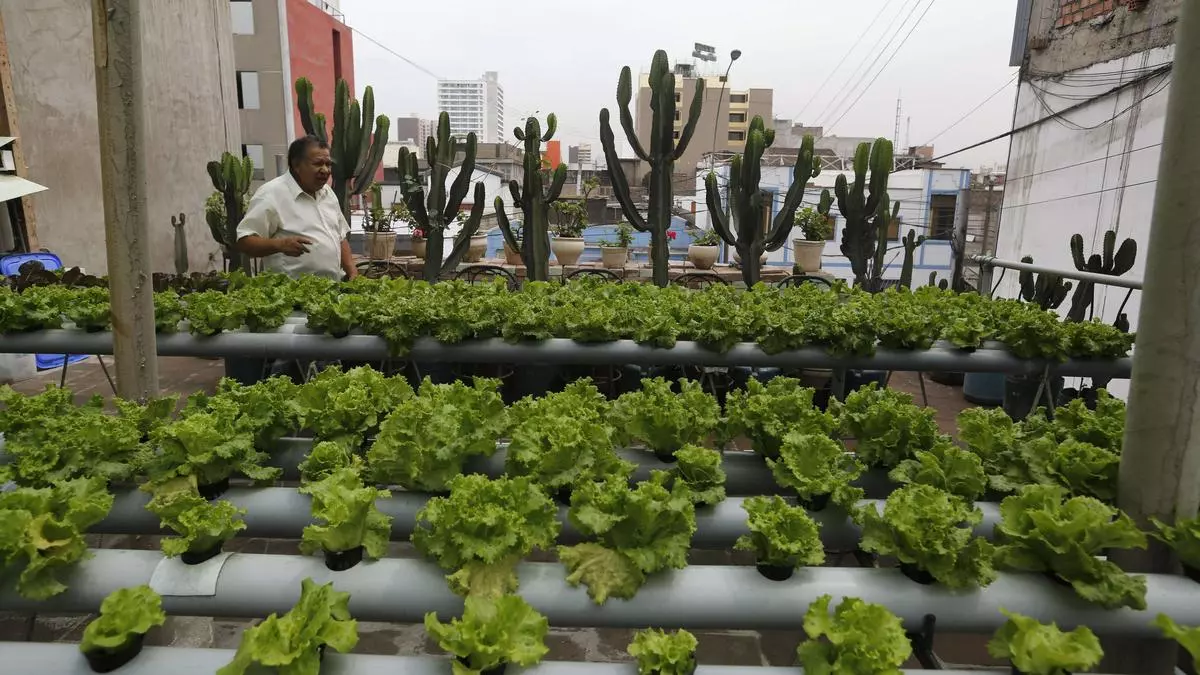As cities around the world continue to expand, urban farming is emerging as a beacon of sustainability and resilience. From rooftop gardens to community plots, this movement is not just about growing food—it’s about transforming urban living. Here’s how urban farming is reshaping our cities.
1. Fresh, Local Produce at Your Doorstep
Urban farming brings fresh, locally grown produce directly to city dwellers. No longer reliant on long-distance transportation, these urban gardens reduce the carbon footprint associated with food miles. Residents can enjoy fruits and vegetables harvested just a few steps away, ensuring peak freshness and nutritional value.
2. Strengthening Community Bonds

Beyond the harvest, urban farms foster a sense of community. Neighbors come together to cultivate gardens, share knowledge, and build relationships. These communal spaces become hubs of social interaction, promoting cooperation and a shared commitment to sustainable living.
3. Revitalizing Urban Green Spaces
Vacant lots and underutilized spaces are transformed into vibrant green areas through urban farming. These green spaces not only beautify the city but also provide recreational areas for residents. They play a crucial role in enhancing the aesthetic and ecological value of urban environments.
4. Reducing Food Waste
Urban farming contributes to minimizing food waste by promoting local food production. With shorter supply chains, there’s less spoilage during transportation. Additionally, many urban farms implement composting practices, turning organic waste into valuable soil amendments, further reducing landfill contributions.
5. Economic Opportunities and Job Creation
The rise of urban farming opens avenues for local entrepreneurship. Individuals can start small-scale farming businesses, sell produce at local markets, or offer gardening services. This not only generates income but also creates jobs, contributing to the local economy and reducing unemployment.
6. Educational Platforms for Sustainable Practices

Urban farms serve as educational platforms, teaching city residents about sustainable agriculture, nutrition, and environmental stewardship. Workshops and volunteer opportunities allow individuals to learn hands-on skills, fostering a deeper connection to food production and ecological responsibility.
7. Enhancing Urban Resilience
In times of crisis, urban farms can provide a reliable source of food. They reduce dependence on external food supplies, making cities more self-sufficient. By integrating farming into urban planning, cities can better withstand disruptions and ensure food security for their populations.
Conclusion
Urban farming is more than just a trend—it’s a transformative movement that enhances food security, strengthens communities, and promotes environmental sustainability. As cities continue to grow, embracing urban farming can lead to more resilient and self-sufficient urban landscapes. Whether it’s a rooftop garden or a community plot, every green space contributes to a healthier, more sustainable future.
Urban farming is not confined to a single region; its influence is global. Cities worldwide are adopting urban agriculture to address local challenges. For instance, in Glasgow, the startup STAX is converting abandoned buildings into insect farms, producing sustainable protein-rich animal feed. This innovative approach not only revitalizes unused spaces but also contributes to a circular food system, reducing reliance on traditional feed sources like soy and fish meal .
Similarly, in Atlanta, over 150 urban gardens and approximately 50 produce farms have been established. These initiatives combat food deserts by providing fresh produce to local communities and restaurants, while also offering education on urban agriculture. Projects like the Urban Food Forest at Browns Mill and the South West Atlanta Growers Cooperative highlight the city’s commitment to sustainable and accessible food systems.
While the benefits are clear, urban farming also faces several challenges. Limited space, high startup costs, and regulatory hurdles can impede the establishment of urban farms. However, these challenges also present opportunities for innovation and policy reform. Cities can incentivize urban farming through tax breaks, grants, and zoning changes, supporting the growth of urban agriculture and stimulating the local economy.
https://gulfmagazine.co/discover-qatar-t,.he-hidden-travel-gems/.



